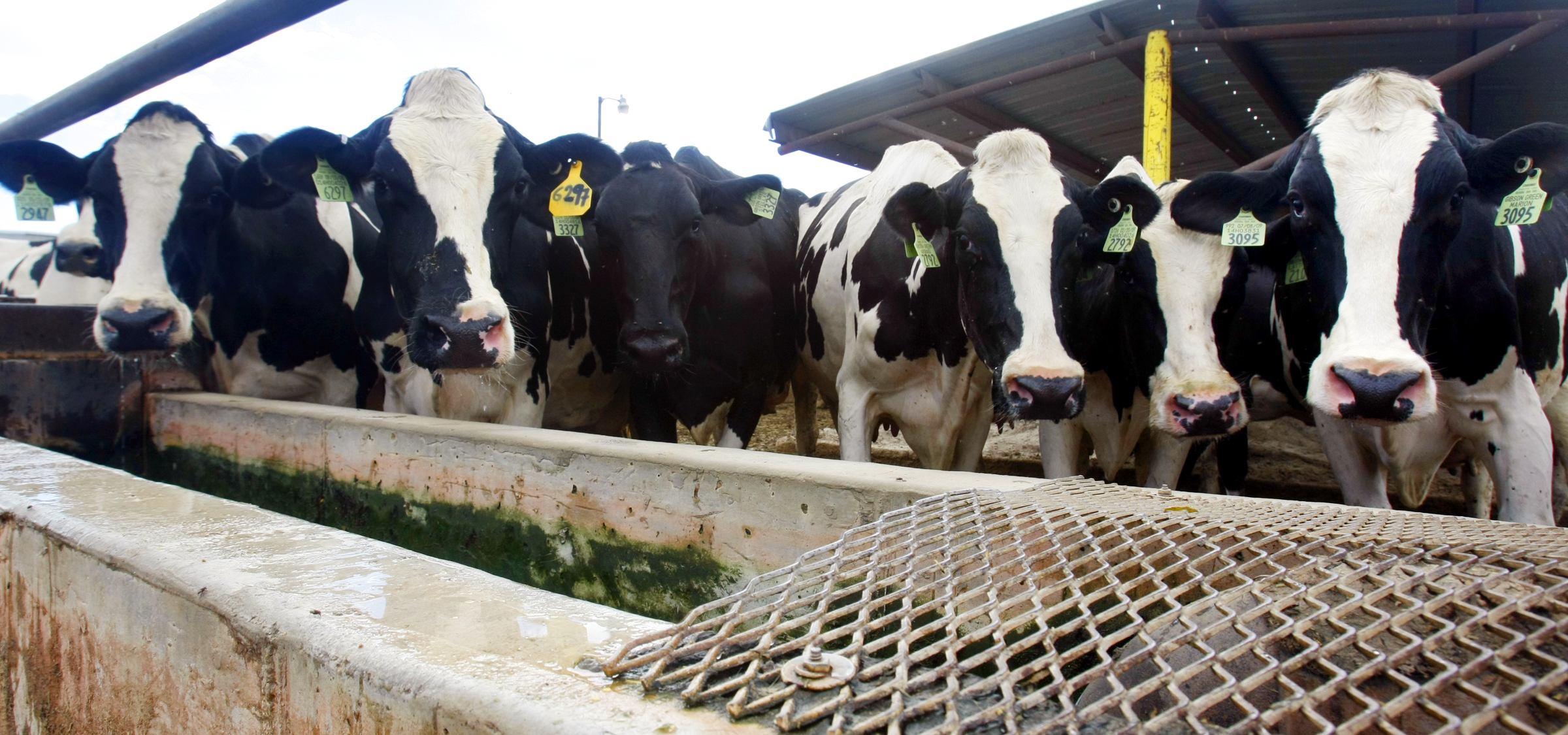China’s soured milk and its impact on Utah’s dairy farmers
Jun 1, 2023, 1:50 PM | Updated: Jun 2, 2023, 8:05 am

FILE: Cows drink water from a trough. Dairy farmer Ron Gibson talks Wednesday, Aug. 29, 2012 about the hardships that this season has brought on. (Scott G Winterton, Deseret News)
(Scott G Winterton, Deseret News)
SALT LAKE CITY — A souring geopolitical relationship between China and the United States is one of the reasons family-run dairies across Utah are closing.
Up until the 1980’s Russia was the geopolitical relation that dominated dinnertime discussion. In the 1990’s the Middle East got some screen time and now it’s China, still with a sprinkling of Russia.
However, does China really have a noticeable impact on the day-to-day lives of everyday Americans?
Dairy farmers in the United States will tell you; yes, they absolutely do.
“I can’t tell you how many dairies have gone out of business the last four months in the state of Utah,” said Ron Gibson the President of Utah Farm Bureau and a dairy farmer in Ogden.
“I mean we’re getting really close to 100 dairies in the state now.
“Just 30 years ago, we had 500.”
Demand is growing in China
China has a population of approximately 1.44 billion people. Naturally, they don’t have a big enough dairy herd to supply the whole country. So like most of the world they import what they need.
Traditionally the country has imported powdered milk for its storage capabilities, from countries like New Zealand, parts of Europe, and of course the United States.
However recently, according to Ron, they’ve started to reduce their dependence on American milk products.
“The barges are coming with steel from China to America and they’re going home empty because we’re not sending anything back and by and large, that is a big kick in the gut to agriculture,” he said.

“When those barges go back empty, that’s a missed opportunity for a farmer and rancher in the United States of America,
“We’ve become the last person on the planet they want to buy their products from, and they are not happy with us.”
China’s lessening faith in the U.S.
It’s not hard to see how Ron has drawn this conclusion.
China is supporting Russia’s war in the Ukraine for example, and they were accused of flying a spy balloon over the US before it was shot down in Montana this year.
Tensions between the United States and China are high, and Ron’s concerns are reflected in the numbers.
According to the World Trade Center Utah, in 2021, the Beehive state traded $2,401,582 worth of powdered milk to China. Last year they only sold $601,659, just 25% as compared to the previous year.
Farmers like Ron are seeing it firsthand.
“Last year, we were getting somewhere between $24 and $25 for 100 pounds of milk,” he said.
“This year, it looks like we’re going get somewhere between $15 and $17.
“That’s a 40% decrease in income for us and our costs haven’t dropped a bit.”
But, not all U.S. ties with China are weakening
Stephen LeFevre is the Chief of Staff at the World Trade Centre Utah.
“On the whole, the relationship trade-wise has been declining in some ways, while also remaining constant in others, because our economies are quite intertwined,” he explained.
“I look more at agriculture as a whole and it’s fairly stable, but as you break it down, livestock and dairy have declined.
“Specifically, this year and the last year has been quite low, relative to previous years.”
The China and American trade relationship is complicated and exceptionally intertwined — both countries rely on each other.
Despite this, ‘economic warfare’ can be waged, particularly between countries with free trade agreements.
“Essentially, it’s [economic warfare]. Using economic means to coerce your trading partner to make changes in their political or other behavior,” Stephen explained.
It’s common, we’ve done it to our partners over the years, and they’ve done it to us.
Stephen says it’s not clear though whether economic warfare is responsible when it comes to the dairy industry.
“I mean, we’ve seen it before … with other countries, we’ve seen [trade changes] just generally as the geopolitical landscape has changed,” he explained.
I think both the United States and China probably are starting to think more long term. So, it [reducing dairy trade] might be strategic.
“But it may be that they’re starting to diversify, it may be easier to get it from a nearby country.”
Strategic or not, the tension between the U.S. and China can’t be ignored
Stephen says the tensions between the two countries is hard to ignore.
“It could be that China is starting to view the United States as an unreliable trading partner and at any minute, they could lose the supply of critical things or important things,” he said.
So, the decline in trade may be an intentional, strategic squeeze from China because of tense relationships at the highest level of politics or they are simply diversifying their supply chains by sourcing from closer countries like New Zealand or Australia.
Regardless, the strain is being felt at kitchen tables a long way from the rooms of diplomacy and for farmers like Ron Gibson the impacts are very real.
“I deal with it every night, I was awake till two o’clock last night, trying to think through what we’re going to do… farmers and ranchers are not okay, they’re really struggling and for the most part, our industry is just in a tough spot.”
Related reading:













